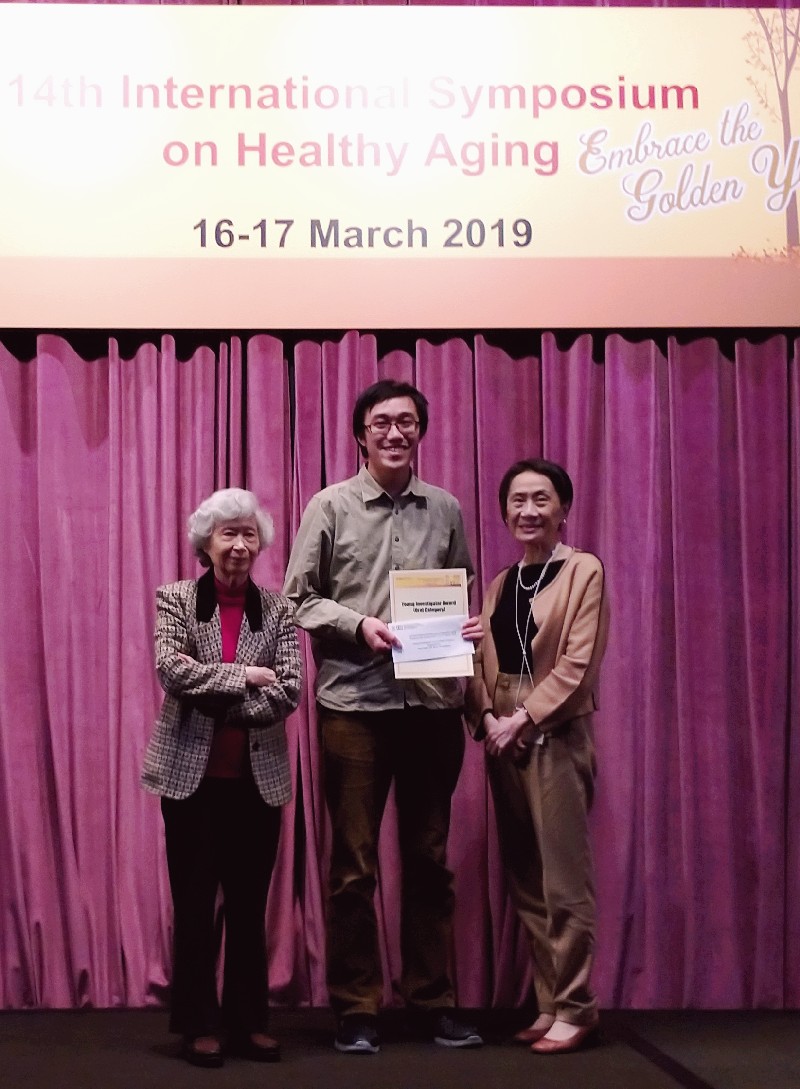
Post-doctoral fellow Dr. Benjamin C.K. Tong won Young Investigator Award for his oral presentation
March 17, 2019
Post-doctoral fellow Dr. Benjamin C.K. Tong won the "Young Investigator Award" for his oral presentation at the 14th International Symposium on Healthy Aging held on 16 - 17 March 2019. He reported his research progress on rectifying disrupted intracellular calcium signaling by Chinese herbal medicine to treat Alzheimer's Disease (AD), a current research conducted by a team led by Prof. Min Li and Dr. King-Ho Cheung of Mr. and Mrs. Ko Chi Ming Centre for Parkinson's Disease Research (CPDR), School of Chinese Medicine, Hong Kong Baptist University
AD is the most common dementia that affects 36 million people worldwide. At present, the disease mechanism remains unclear and there is no effective treatment to cure or to slow it down. Thus, searching a novel therapeutic compound from traditional Chinese medicine (TCM) has gained much attention in the neuroscience field. For the past few decades, amyloid plaques and neurofibrillary tangles had been the main culprits of AD. However, recent studies suggested intracellular calcium disruption may play a fundamental role in the AD pathogenesis. Intracellular calcium signals control many neuronal functions and it has been found to be disrupted in AD neurons resulting aberrant in cell growth, plasticity, learning and memory, and autophagy - one of the crucial metabolisms that degrade cellular waste in a "self-eating" manner. A battery of evidence had demonstrated that maintaining healthy cellular autophagy is important for AD prevention. The research team discovered that compounds from some TCM may rescue the disrupted calcium signals to restore cellular autophagy to clear amyloid plaques and improve memory function in AD mice.
The research team anticipates that this ongoing research will bring insights into understanding the role of calcium signaling and autophagy pathways in AD pathogenesis and developing TCM into effective therapeutic interventions for AD.


